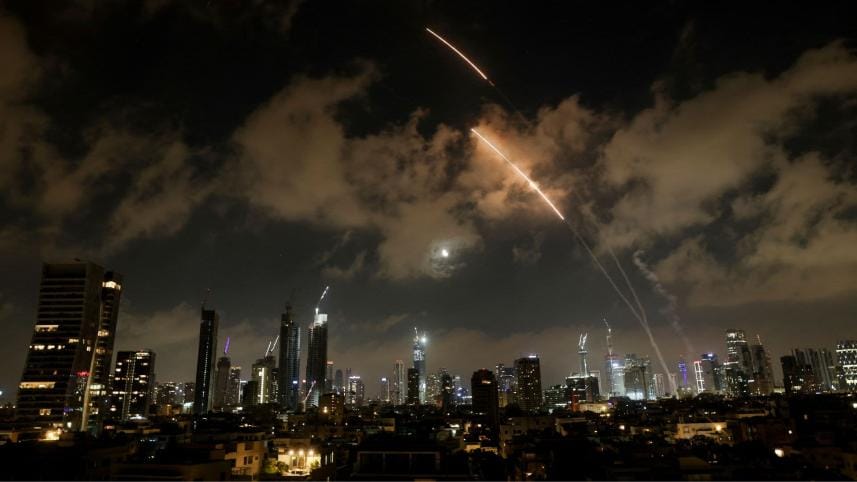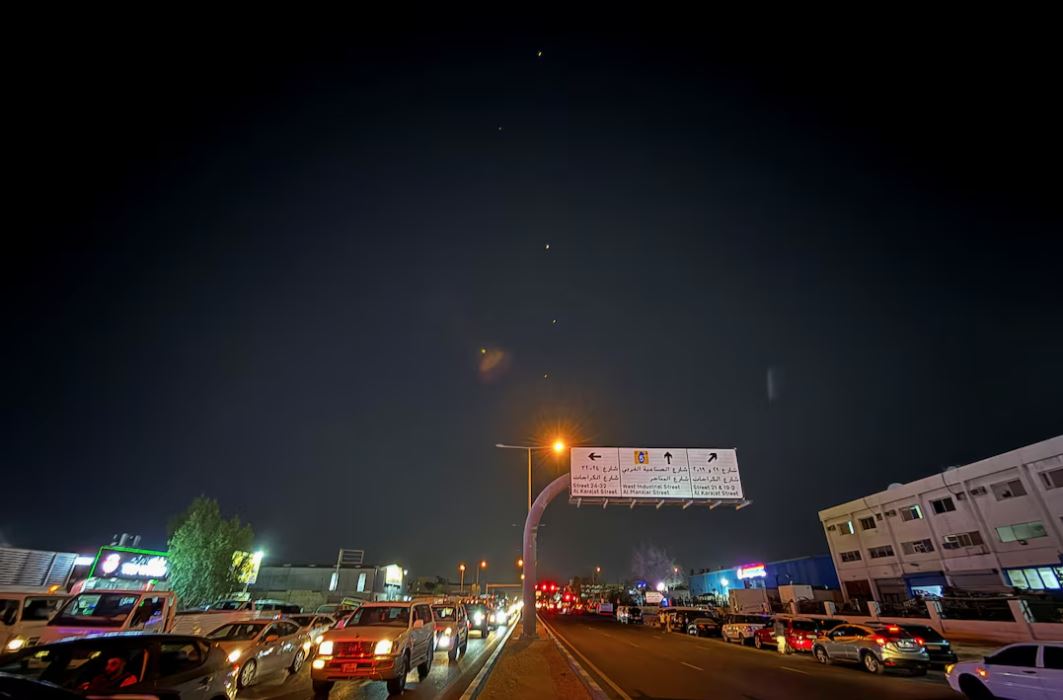Operation Rising Lion and its wider fallout in Israel-Iran conflict

It all began with a simple business deal. In 2022, BAC Consulting, a small Hungarian management firm housed in a plain two-storey building in Budapest, reached out to Gold Apollo, a Taiwanese electronics manufacturer, to license its brand name for producing pagers. The request appeared straightforward—a European distributor seeking to manufacture communication devices for the Middle Eastern market. What Gold Apollo didn't realise was that BAC was secretly redesigning these pagers with a deadly twist: tiny amounts of explosives concealed inside what looked like ordinary, low-tech devices. These were then sold to unsuspecting Hezbollah members in Lebanon. Between 3:30pm and 4:30pm on September 17, 2024, thousands of the pagers detonated, killing at least 12 people, including eight Hezbollah fighters. This intricate deception is now considered one of the most sophisticated intelligence operations in recent history.
A small quantity of PETN (pentaerythritol tetranitrate), a highly explosive compound, was placed in the batteries of the devices. They were detonated by remotely raising the battery temperature via radio signal—another novel design feature. Ironically, Hezbollah preferred these simple pagers precisely because they lacked advanced features, thus appearing safer from Israeli surveillance.
Few realised that BAC Consulting was a front for Mossad, Israel's national intelligence agency. The operation revealed Israel's strategic shift from traditional methods to a new era of advanced, tech-based intelligence warfare. Analysts now refer to this as "ungentlemanly warfare": the integration of cyber capabilities, miniaturised explosives, and supply chain infiltration. The execution of Operation Rising Lion marks a significant milestone in this evolving doctrine.
Israel's regional challenges over recent decades have exposed the limitations of conventional military tactics. In Lebanon, Hezbollah's asymmetric warfare repeatedly frustrated the Israel Defense Forces (IDF). Gaza posed similar challenges, with Hamas's tunnel networks and urban guerrilla strategies. The Houthis in Yemen forced Washington into negotiations as military operations failed to contain them. Meanwhile, Iranian influence in post-American Iraq underscored the limits of foreign military intervention.
These diverse experiences shared key traits: adversaries employing asymmetric tactics, exploiting local terrain, and mobilising civilian support. They operated within complex political landscapes that rendered conventional warfare increasingly ineffective. This prompted a reassessment of Israel's strategic toolkit—an evolution that culminated in Operation Rising Lion.
The latest component of this campaign began in the early hours of June 13 this year. Swarms of small explosive drones, smuggled into Iran months earlier by Israeli commandos, first neutralised the country's air defence systems. This was followed by waves of air strikes, with Israeli aircraft operating almost unhindered in Iranian airspace. The mission involved around 200 combat aircraft—including F-15I, F-16I and F-35I jets—striking more than a hundred high-value targets deep inside Iran. It was the most significant assault on the country since the 1980-89 Iran-Iraq War.
The operation's success relied heavily on extensive espionage networks inside Iran, built painstakingly over many years. Apple TV's Tehran (TV series, 2020–) offers a glimpse into how such infiltration might have been executed. The first clear warning to Iran came in July 2024, when Israel assassinated Ismail Haniyeh—Hamas's top political leader and a guest of the Islamic Republic—in central Tehran, revealing Mossad's reach within the country's most secure zones. The September pager explosions in Lebanon served as a second warning. It is no surprise, then, that Israeli operations have consistently demonstrated deep knowledge of personnel movements, security protocols, and infrastructure vulnerabilities.
The timeline of events reflects long-term strategic planning, not merely reactive measures. Rather than treating each regional challenge in isolation, Israel adopted a unified doctrine, viewing its adversaries as interconnected components of a broader regional threat landscape. Hamas's attack on Israel in October 2023 presented an opportunity for the IDF to launch an extensive campaign in Gaza, significantly weakening the group.
In 2024, Israel turned its attention to Hezbollah, assassinating its leader, Hassan Nasrallah, in air strikes near Beirut in September. The following month, Iran retaliated by launching around 180 ballistic missiles at Israel—most of which were intercepted, though a few did strike their targets. Later in October, Israel responded by destroying Iran's S-400 air defence systems that had been acquired from Russia. The stage was thus set for Operation Rising Lion.
Despite some criticism, Operation Rising Lion appears to have achieved its immediate goals. It reaffirmed Israel's conventional military superiority over Iran and underscored the importance of intelligence, surprise, and integrated air and missile defences. However, its impact on Iran's nuclear programme remains unclear.
The operation's long-term success is also uncertain, as many variables—some still unknown—will shape its effectiveness. Nonetheless, Israel's shift from tactical stalemates to strategic assertiveness signals a broader transformation in the regional conflict landscape. How its adversaries adapt to this new reality may well determine the course of Middle Eastern security in the years to come.
Dr Sayeed Ahmed is a consulting engineer and CEO of Bayside Analytix, a technology-focused strategy and management consulting organisation.
Views expressed in this article are the author's own.
Follow The Daily Star Opinion on Facebook for the latest opinions, commentaries, and analyses by experts and professionals. To contribute your article or letter to The Daily Star Opinion, see our guidelines for submission.




 For all latest news, follow The Daily Star's Google News channel.
For all latest news, follow The Daily Star's Google News channel. 

Comments